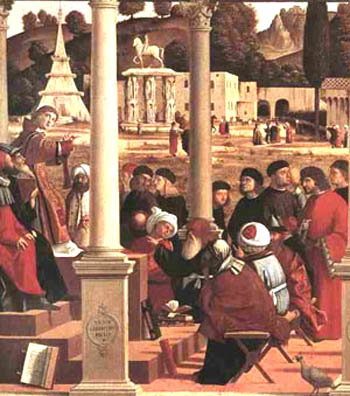The previous post in this series raised the question over the nature of the apparently very sharp divisions between the Hellenists and Hebrews in the early Jerusalem church. This division was sharp enough to bring about not only a division within the church itself but was a cause for the Hellenists (led by Stephen and such) being persecuted and driven out of Jerusalem while the Hebrew faction, under the leadership of the twelve apostles, remained in Jerusalem untouched.
More precisely, it follows from the persecution of the Hellenists ‘that their “gospel” necessarily contained something which the Jews could not bear and which was lacking in the preaching of the “Hebrews”.’ What was this special feature in the Hellenists’ preaching? (p. 20, Schmithals, Paul and James)
Walter Schmithals finds a tell-tale clue to answer this question in what he argues is the “pre-Lucan tradition” that lay behind Luke’s account of Stephen’s martyrdom and the ensuing persecution.
This “tradition” or the “real story” that Luke attempted to whitewash, says Schmithals, was that Stephen and the Hellenists preached blasphemous things against the Temple, Moses and the Law. They declared that Jesus was going to destroy the Temple and change the Mosaic customs. Luke says that this charge against Stephen was brought by “false witnesses” (Acts 6:11ff). He has Stephen point out in his speech in response that it was “not the Christians but the Jews themselves who rejected Moses and the Law (Acts 7:35, 37, 39-43, 48-53).” According to what else we read in Acts it is clear that the apostles and first converts themselves had only respect for the Temple and Law since they met in the Temple to worship and preach. But not so the Hellenists, apparently. Continue reading “The Hellenistic-Hebrew division in the Jerusalem church – 3”

